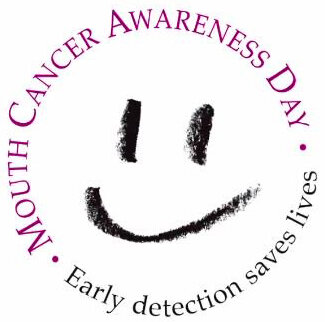The Dental Health Foundation is supporting Mouth Cancer Awareness Day, taking place today, the 21st of September.
Mouth Head and Neck Cancer (MHNC) is one of the less well-known cancers but there are over 700 cases every year in Ireland, with the number of people diagnosed with it set to increase in the next 25 years. It is the sixth most common cancer in men worldwide, but it also affects women and younger people.
There was a rise in unhealthy lifestyle behaviours such as smoking and drinking alcohol during the pandemic. The National Covid-19 Food Study found people drank more alcohol and that almost 30% reported drinking more frequently during lockdowns. Unfortunately, in Ireland, alcohol plays a role in up to half of the cases of MHNC. If you have 2 or more standard drinks a day you are 3 times more likely to be diagnosed with these cancers compared with those who do not drink. If you smoke and drink the risk is even greater; up to 35 times more likely. This is because tobacco and alcohol work together to cause much more damage.
It is not just a problem for ‘heavy’ drinkers. There is no completely safe level of drinking so drink less to reduce the risk.
- Stay within the weekly guidelines for low-risk drinking:
- 17 standard drinks for men
- 11 standard drinks for women
- 1 standard drink equals:
Half pint of beer/stout/ale
Single measure of spirits
Small glass of wine (100ml)
- Avoid drinking 6 standard drinks (3 pints) on any one drinking occasion.
- There are lots of tips and tools to help you achieve this on askaboutalcohol.ie and check www.quit.ie for help to stop smoking.
Learn to recognise the symptoms for MHNC such as an ulcer, white or red patches inside the mouth, a lump in the mouth or neck, or a persistent sore throat or hoarseness. If you have had any of these for more than three weeks, it is important that you visit your dentist or doctor immediately.
Regular dental visits are key to early detection, improved treatment outcome, long-term survival, and quality of life.
There was an interruption to dental visits during the pandemic so people may have gotten out of the habit of it. We urge anyone who has not visited a dentist in the past year to have a routine mouth check-up, to make an appointment, even if they have no remaining natural teeth. A mouth cancer examination is painless and only takes a few minutes.
Further information regarding the signs, symptoms, risk factors, and how to reduce your risk of MHNC is available at www.mouthcancer.ie and www.dentalhealth.ie
